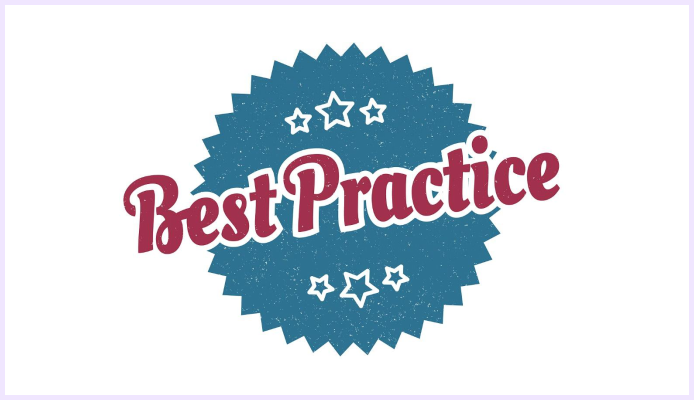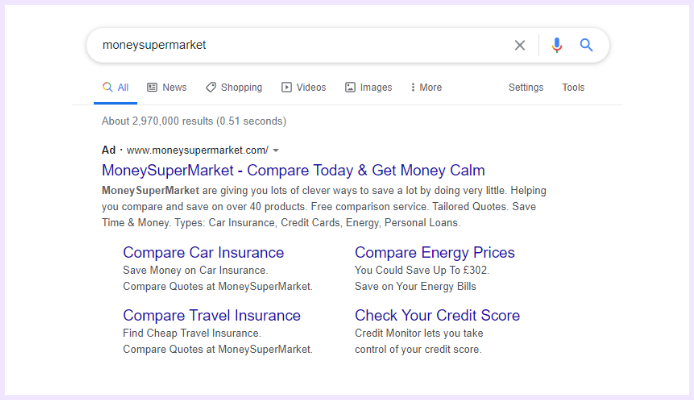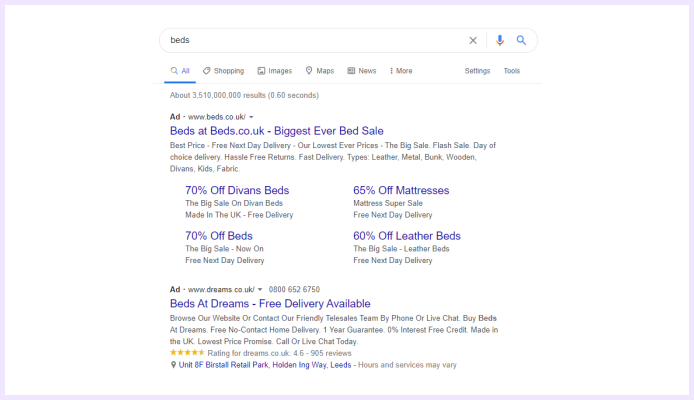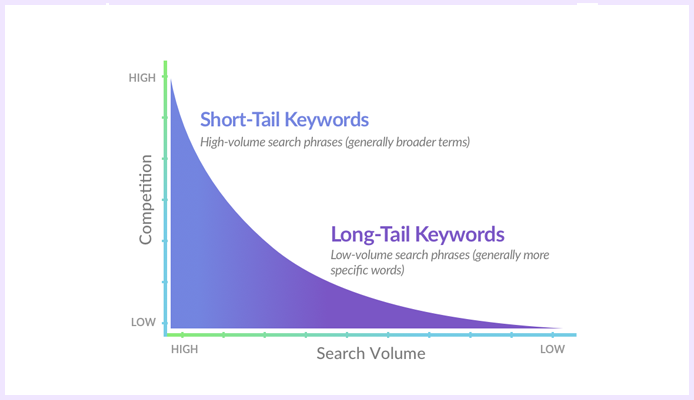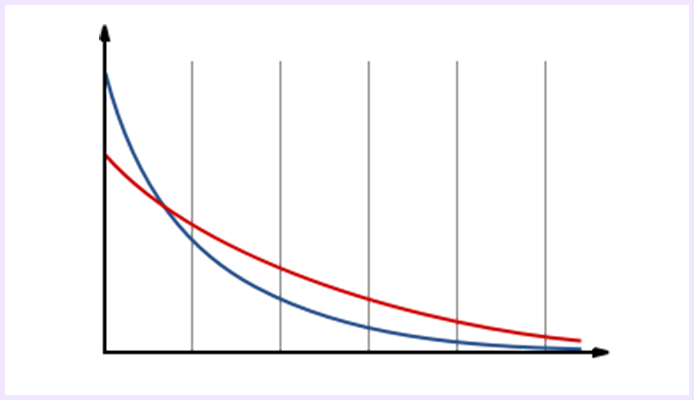Five times you really should bid on your brand
Five times you really should bid on your brand
A question that often raises debate in a digital marketing team is whether they should bid on their brand terms. PPC marketers often want to bid on their brand terms because this traffic performs so well. It therefore makes their performance reports look nice. While other marketing members may argue that a sale from a brand search would have happened anyway regardless of whether a PPC ad was present or not.
There are many blogs out there that talk about the benefits of brand bidding. Two good examples of these are here and here. To balance things out, you can read a blogpost on why you shouldn’t bid on your brand terms here.
In this blog I want to be more neutral. I’m going to talk about some of the arguments for bidding on your brand terms as well as the responses. I’m also going to talk about seven scenarios where there is stronger argument to bid on your brand terms.
What is brand bidding?
Brand bidding is the practice is of bidding on a business’s own brand name. A business may bid just on their brand name, or they may bid on their brand name alongside some other words.
In most cases, it is expected that a business will appear on position one of the organic search results for their own brand. That is, when someone searches for a company’s brand name, the first organic listing is the business that was searched for.
If most companies appear on the top of organic listings when their brand name is searched for, then you may be wondering why a business would want to pay to have a PPC ad appear on Google’s search engine results page?
One example of a time when you may want to bid on your brand name is when a competitor is bidding on your brand name. In this blog we’ll run through some more reasons when there is a good reason to bid on your brand name.
The two types of brand bidding
All brand bidding is not the same. There are two types of brand bidding. The reason for bidding on each type of branded keywords will differ.
Pure brand
Long-tail brand
Pure brand
Pure brand is when you bid on your exact brand name, or mis spellings of it. Bidding on your pure brand terms are generally cheap. This is because you are likely to have a very good Quality Score and clickthrough rate on your pure brand terms.
It is often argued that people searching for a pure brand term are most likely to find your listing and click through to your site regardless of your position on the page.
Long-tail brand
Long-tail brand terms are searches that contain your brand name within them as well as other terms. Some examples of long-tail brand terms are ‘Nike jeans’, ‘British Gas LPG boilers’ and ‘Asos dresses’. In all these searches, the brand has been mentioned as well as a product that the brand sells.
There is more of a danger that a competitor’s PPC ad will appear on a long tail search containing your brand name. This is because a competitor may be bidding on the long-tail part of the search term with a phrase match, broad match or broad match modified keyword.
For example, if a competitor has a phrase match keyword for maxi dresses, then their ad can potentially show when someone searches for ‘Asos maxi dresses’.
Some arguments for bidding on brand and their responses
I’ve added some reasons to bid on brand traffic that often get cited. To remain impartial and to give a balanced view, I’ve also added responses to these points.
Protect your brand
Perhaps the main reason why people bid on their brand terms is because it protects their brand from competitors. If a competitor is bidding on your brand term, then they are potentially stealing some of your best quality traffic.
Research done by PPC Hero shows that when brand bidding was switched off, organic did pick up some of the lost revenue, but overall revenue decreased by 24% . This strengthens the view that organic wouldn’t pick up all the traffic that a PPC brand campaign would pick up, if brand bidding was to be switched off.
Response
It is argued that if someone searches for your brand term, then there is a very high likelihood that they will scan down the results page until they find your listing. This is because they searched for your brand name specifically and not a generic term.
While bidding on brand traffic may increase the overall amount of traffic, you have to pay for a lot more than just the incremental extra brand traffic that you’re going to get. When you factor in the total cost of your brand campaign, it may not be worthwhile running brand to obtain a few extra incremental clicks.
Control your messaging
If you change the messaging in your PPC ad copy, the messaging in your paid brand ad will change almost instantly. This means that you have a lot more control and can quickly test messages.
If you have a sale running, then a PPC ad allows you to quickly change the messaging and advertise your sale.
Response
Businesses can still control what messaging appears on the organic listing, even though it may take longer to take effect.
If you’re appearing on top of the page organically and there is no paid competition above your organic listing, then you’re most likely going to get the click anyway. This means it doesn’t really matter if a sale message in the form of a PPC ad appears above your listing or not.
Dominate the SERPS
Having both an organic and a paid listing shows that you’re a leader in your space. It allows businesses to dominate the SERPs for their brand term. The addition of an extra paid ad will push your competitor’s listings further down the page. This will increase the chances of the customer clicking your listing and not a competitor’s listing.
Response
If you don’t have a competitor using PPC ads to appear above your organic listing, then you’re already dominating the SERPS by appearing on position one organically.
If you’re worried about other organic competitors taking your brand traffic, then you need to work on getting more than one listing to appear on the organic search results. You can do this by trying to get your social media links or a Wikipedia page to also appear under your brand listing.
Some best practices for a brand campaign
Before we look at the times when you probably should bid on your brand terms, there are some best practices when it comes to brand bidding.
Block out non transactional terms
There are some searches where you really don’t need PPC support to secure the click. Searches where the user will actively try to find your website on the SERPS (search engine results pages) regardless of whether your website is appearing on the top of the page or not.
For example, if the user is searching for ‘
Think about non transactional terms that you don’t need to be spending your PPC budget on and block them out. This should help to direct your PPC budget to searches that are genuinely going to benefit your business. Some of the searches that you could block out from your PPC brand campaign are:
- Returns
- Complaints
- Careers/jobs
- Phone number
- Address
Block out brand searches from non brand campaigns
A lot of PPC advertisers bid on non-exact match keywords, which is fine to do. However, this does mean that your non brand campaigns can pick up brand traffic.
For example, if you’re bidding on ‘men’s shirts’ as a phrase match keyword, then this keyword may pick up traffic for ‘
Picking up brand traffic from your non brand keywords will make your non brand campaign performance look deceptively strong. This is because the brand traffic generally performs much better than non-brand traffic. Segmenting your brand and non-brand traffic will allow you to better understand of the performance of your campaign and what needs to be done to further improve it.
Create separate brand and non-brand campaigns. Once you have done this, block out your brand name as well as mis spelling and plural versions of it from your non brand campaigns. This will prevent any brand traffic from being picked up by your non-brand campaigns.
Segment out long-tail searches
Segmenting out pure brand and long-tail searches will allow you to see the performance of both. Pure brand searches are likely to have the best performance, but these searches are the hardest to justify paying for. This is because these are searches where the user has shown the highest level of interest in your business. There is a high likelihood that the user would have clicked through to your site even without a PPC ad.
With long-tail searches, there is slightly more danger that the user will get distracted by another listing on the page. It is therefore worthwhile splitting out your long-tail searches into separate ad groups so that you can monitor them separately.
Segment out keyword themes where you would want to tailor the ad copy or use a specific landing page. For example, if you’re an ecommerce business selling clothing, then you may want to bid on your brand term alongside certain types of clothing. For example, if you’re bidding on ‘
Test a brand switch off/switch on
To see whether a brand PPC campaign is right for your business, you can test switching it off if you’re currently running it. If you’re not a PPC brand campaign, then you can test the impact of switching a PPC brand campaign on.
A good starting point when testing whether a brand campaign is beneficial for your business is to test a period with PPC switched on. Then you can test a period with PPC switched off. Once you’ve got a period with PPC switched on and a period with it off, you can see whether overall revenue increases or not with a PPC brand campaign.
By switching off your brand campaign, you will see a reduction in revenue reported by PPC. You will also see an increase in traffic and revenue from organic. However, you need to look at whether any increase in revenue from organic and other channels totals the amount of revenue that was coming in when you were running a brand campaign.
If you find that overall revenue is around the same as when a PPC brand campaign was being run, then you don’t need to run a brand campaign for your business. However, if you find that your overall revenue is noticeably lower, then you know that you PPC brand campaign is bringing in additional value to your business.
When is there a strong argument to bid on brand?
There is often some good reason to bid on your brand terms. These are mainly when your organic listing is not appearing on the top of the page. Here are seven scenarios where you could consider a PPC brand campaign:
- Competitors bidding on your brand
The most appropriate time to utilise brand bidding is when a competitor is bidding on your brand name. If a competitor is bidding on your brand, they are potentially taking some of your best traffic. A PPC campaign can help to win back the clicks that the competitor would have taken from you.
In the below example, Compare the Market and Confused are both bidding on Money Supermarket’s brand name. To counteract this, Money Supermarket has decided to also bid on their brand name. This is to stop losing brand traffic.
Google’s advertising policy states that competitors can bid on a company’s brand keywords. Their policy states:
“We don’t investigate or restrict trademarks as keywords”
In the past, some of my clients have reached out to the competitor in question and asked them to stop bidding on their brand term. While this is rare, if you have a good relationship with a competitor, then sometimes this strategy can work.
- Your brand name is similar to a non-brand keyword
Setting up a business with a name that is similar to a relevant keyword within your niche can bring with it many benefits. For starters, it’s likely to help with your organic rankings for that keyword.
However, it does mean that competitors may appear on a search for your brand term without intentionally wanting to bid on your brand.
For example, if you sell beds, then having a name like ‘Beds’ does bring it’s own benefits. But it means that you’re going to have a lot of competitors potentially bidding on your brand name without intentionally wanting to take any of your branded traffic.
In the above example, Beds.co.uk are bidding on their brand to ensure that they don’t lose branded traffic to a competitor.
- There is an urgent message that you need to convey
If there is an urgent message that you really want to convey, then you could choose to temporarily run a paid brand campaign.
For example, if you have a flash sale running, and competitors are bidding on your pure brand term or long-tail brand term, then the sale message can help you win the click.
PPC ad messaging can change almost instantly. This means that you can easily advertise a flash sale or an urgent message like your deliveries have started again during the COvid-19 lockdown for example.
- You’re losing long-tail traffic to competitors
There may be long-tail traffic that is being lost to competitors if your competitors bid on non-exact match keywords. For example, if you sell shoes and your competitor is bidding on shoes as a phrase match, then their ad may still show up on a search for ‘
To stop losing long-tail branded traffic, you may decide to bid on long-tail branded keywords. This will require doing some keyword research to identify long-tail branded keywords that have a high volume and are likely to be profitable.
- Long-tail brand searches bring up competitor Shopping results
Competitors actively bidding on a keyword that takes your brand traffic is one thing, but with a Google Shopping campaign, you have a lot less control over the traffic that your ads appear against.
With a Google Shopping campaign, Google will decide what traffic to show your ad on based on your product feed. This means that Google may chose to show a competitor’s product listing ad on a search for your long-tail brand term.
In the below example, Google has chosen to show a product listing ad for the business being searched for, and a competitor’s listing. This means that the business being searched for may lose some of their long-tail brand traffic to the competitor in the product listing ad.
To minimise the affect of losing their long-tail branded traffic to a competitor, Drench have decided to run a PPC search ad as well as a product listing ad.
- You need to push down negative PR
Negative PR can often appear alongside a search for your brand term under your business’s listing. A user searching for your brand name may click through to the negative PR listing and not your organic brand listing. This will not only affect your clickthrough rate, but the negative PR is also likely to affect your sales or leads.
While there are other ways to tackle negative PR, one way is to add a paid ad that will push the negative PR further down the page. This will make the negative PR listing less prominent and hopefully catch the eye of fewer people.
- You want to direct traffic to a specific landing page
Lead generation businesses are often testing new landing pages to improve their conversion rate. I’ve worked with businesses that wanted to test a specific landing page design but didn’t want to change their homepage.
In this instance, one option is to run a PPC ad on your branded terms where you test whether a new landing page converts better than your homepage.
Wrapping up
The decision to bid on your brand terms can be controversial. It can be difficult to determine whether a sales from a PPC brand campaign would have happened any. That said, there are some instances where bidding in your brand terms can be beneficial for your business.
Consider what organic and paid listings are appearing on a search for your own branded terms to determine whether you should be bidding on your brand terms or not.
Author bio
Rashed is passionate about all things digital marketing and PPC. Rashed has been helping businesses with their digital marketing for over nine years. He is currently the PPC Director for Pepper PPC agency based in Leeds, UK.






